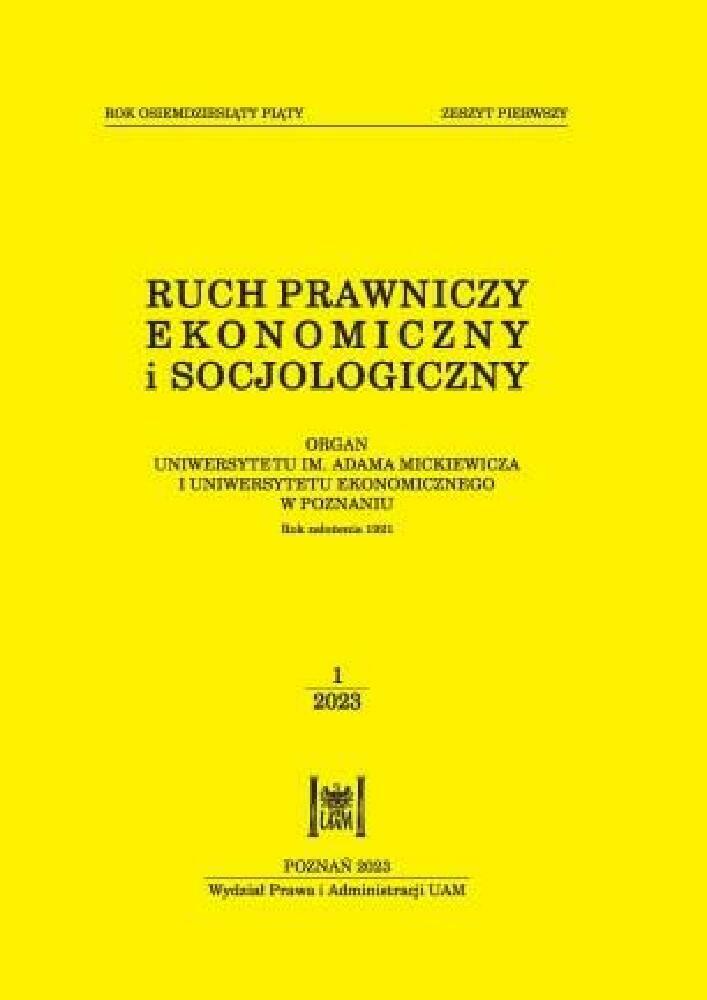Abstrakt
The article aims to identify measures that should be taken to create an effective model of Polish public procurement. The study addresses the impact of the COVID-19 pandemic, the war in Ukraine, and the European Union policies on climate change and technological developments, including aspects of the Fourth Industrial Revolution, on the Polish public procurement market. A dogmatic method is adopted. The current challenges and prospects of the Polish public procurement market are analysed from the perspective of the Public Procurement Law of 11 September 2019, which came into force on 1 January 2021. The study shows that the effective model of public procurement should be based, first and foremost, on increasing dialogue between the public and private sectors, increasing the implementation of so-called strategic procurement, and creating conditions for supporting the principle of competitiveness.
Bibliografia
Andhov, M., Caranta, R., Wiesbrock, A. (2019). Cost and EU Public Procurement Law, Life-Cycle Costing for Sustainability. London. DOI: https://doi.org/10.4324/9780429060045
Bovis, Ch. (2018). Strategic Public Procurement in the EU and Its Member States. European Procurement & Public Private Partnership Law Review 13(2): 87–90. DOI: https://doi.org/10.21552/epppl/2018/2/3
Carter, W. (2019). Defining the Technologies of the Fourth Industrial Revolution. In A. Milner, E. Yayboke (eds.), The Fourth Industrial Revolution in the Developing World (pp. 16–22). Washington.
COM(2019, 11 December) 640 final. European Commission, The European Green Deal. Brussels.
COM(2020, 10 March) 102 final. European Commission, A New Industrial Strategy for Europe. Brussels.
Kola, J. (2020a). Public procurement as a tool of conducting development policy in emerging markets: The example of Poland. In G. Quinot, S. Williams-Elegbe (eds.), Public Procurement Regulation in Africa: Development in Uncertain Times (pp. 249–269). Durban–Johannesburg–Cape Town: Lexis Nexis.
Kola, J. (2020b). Zamówienia publiczne na innowacyjne technologie medyczne. In K. Kokocińska (ed.), Innowacyjne technologie w ochronie zdrowia. Aspekty prawne (pp. 159–194). Warsaw: Wolters Kluwer.
Klinge, C. (2019). Technology and the New World Order Risks and Opportunities. In A. Milner, E. Yayboke (eds.), The Fourth Industrial Revolution in the Developing World (pp. 6–15). Washington.
Report of the President of the Public Procurement Office (2022). Report of the President of the Public Procurement Office on the functioning of the public procurement system in 2021. Warsaw.
Raymond, P. (2019). The Fourth Industrial Revolution and Infrastructure Implications and Impacts. In A. Milner, E. Yayboke (eds.), The Fourth Industrial Revolution in the Developing World (pp. 40–45). Washington.
Schwab, K. (2016). The Fourth Industrial Revolution: What it Means, How to Respond. World Economic Forum (January 14, 2016).
Zieliński, M. (1997). Konstytucyjne zasady prawa. In J. Trzciński (ed.), Charakter i struktura norm Konstytucji (pp. 58 ff). Warsaw.
Licencja
Prawa autorskie (c) 2023 WPiA UAM

Utwór dostępny jest na licencji Creative Commons Uznanie autorstwa 4.0 Międzynarodowe.





